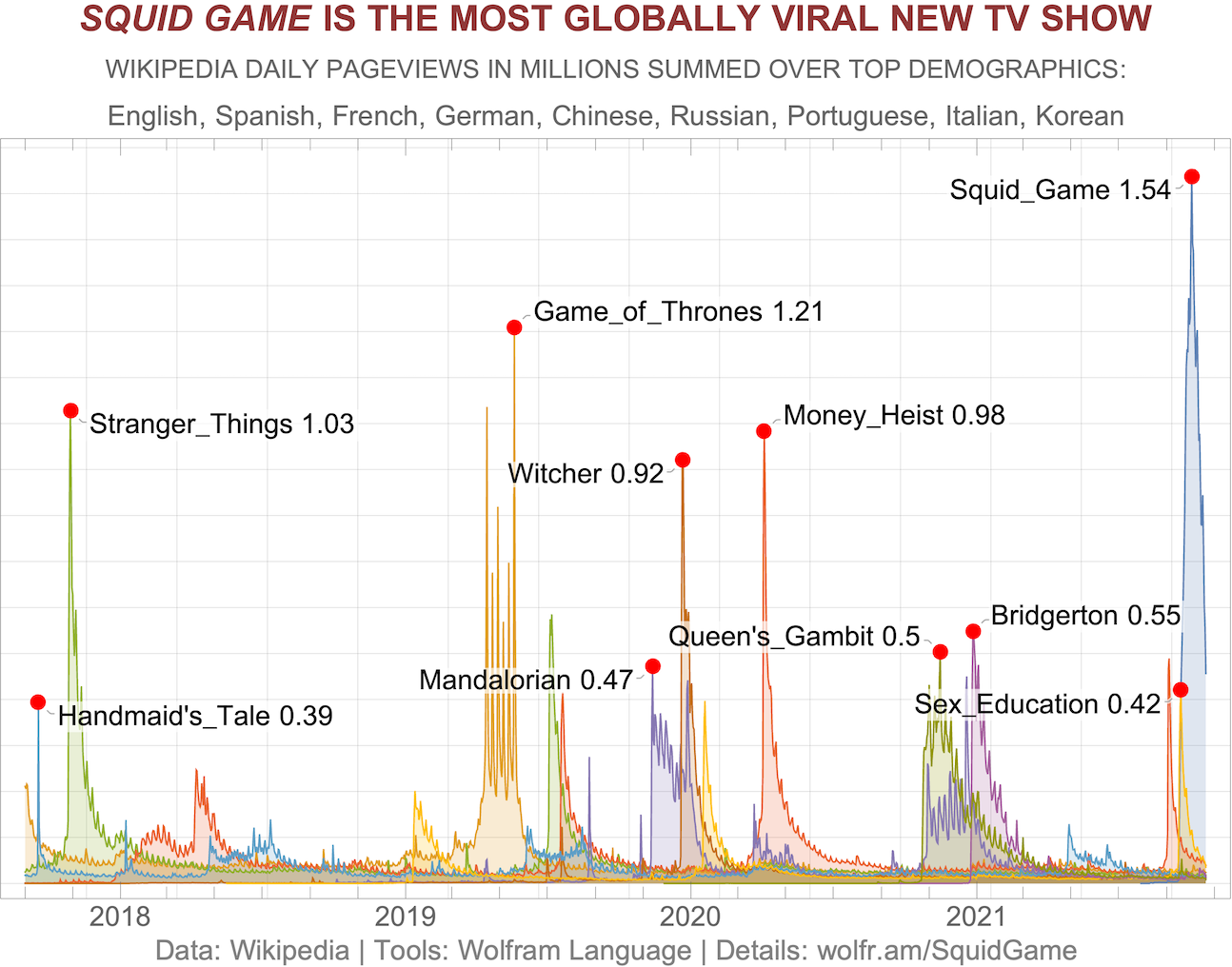
Squid Game Dominates Global TV Scene per Wikipedia Trends—Wolfram Blog
The new Korean TV series Squid Game has taken the world by storm and become a global breakout phenomenon. Netflix, its distributor, announced, “Squid Game has officially reached 111 million fans—making it our biggest series launch ever!” It’s topped the charts in 90 different countries, including the United States, and has been called “a word-of-mouth global sensation” that’s flooded the news and social media.
Squid Game’s viewership growth was so rapid—and massive—that soon after its release, the show was projected to make almost $900 million from a roughly $20 million production budget, according to Bloomberg. The same report also mentions that Netflix does not reveal the details of its various data metrics.
Pageviews of Wikipedia articles are an interesting, independent public data source that can serve as a sensible proxy to detect popularity trends. Another typical alternative is the number of relevant search engine queries. But those are easily mixed in with other similar subjects’ searches, especially across different languages.
Wikipedia Pageview statistics is a recent project with data going back only to July 1, 2015. But it plays along with the only recent success of Squid Game I am trying to quantify. Wikipedia data is also very focused: it has both dedicated pages for TV shows and separate pages per language, and the encyclopedic quality of the content attracts and helps to evaluate the truly engaged readership—a quality generally very hard to come by.






















/cdn.vox-cdn.com/uploads/chorus_asset/file/25416369/STK473_NET_NEUTRALITY_CVIRGINIA_A.jpg)
